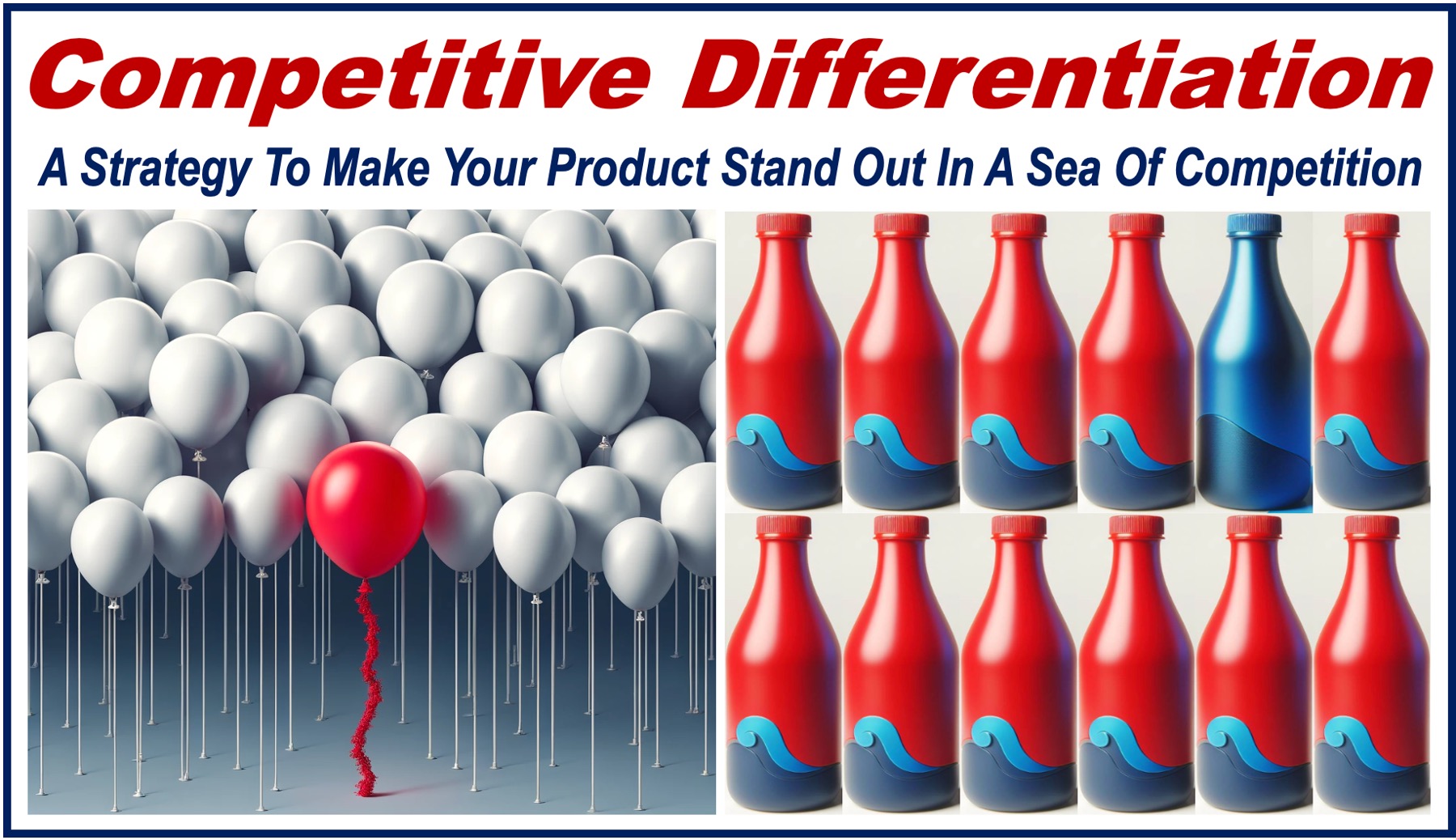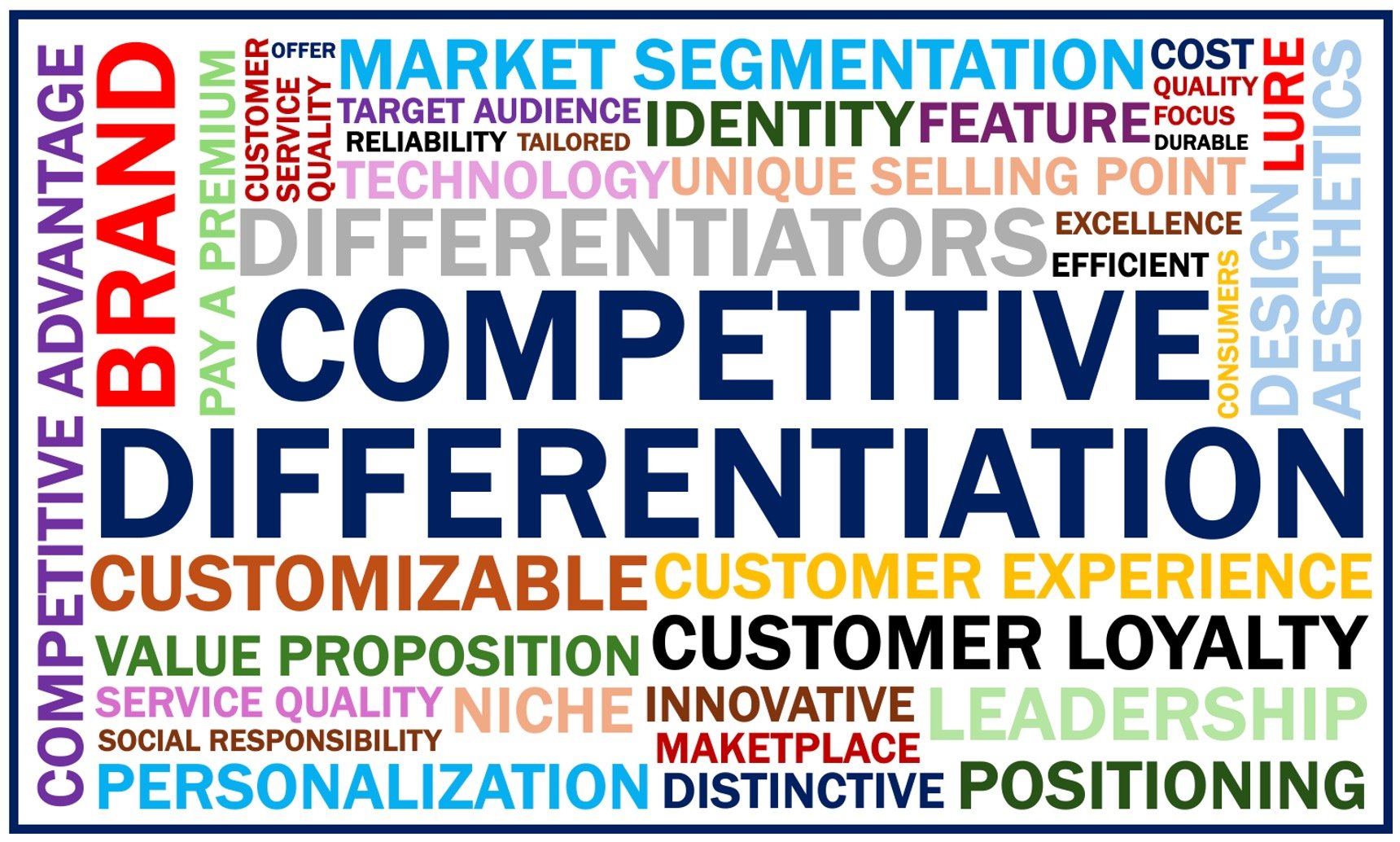Competitive Differentiation is about finding what makes your company truly unique – something that sets it apart from your competitors.
It refers to the process of distinguishing a business’s products or services from competitors, emphasizing their unique features and benefits that attract customers.
If your business can stand out from the crowd, your chances of success are much greater. The things that customers value the most are the product’s price, quality, reliability, brand, functionality, performance, user-friendliness, safety features, and customer service.
If consumers see your products as superior to those of your rivals, your competitive differentiation strategy has been successful.
The goal of competitive differentiation is to have consumers perceive your company’s offering as superior when compared to those offered by your rivals.
TechTarget.com has the following definition of the term:
“Competitive differentiation is a strategic positioning tactic an organization can undertake to set its products, services and brands apart from those of its competitors.”
“The goal of competitive differentiation is to have the customer perceive an organization’s offering as being superior when compared to other similar offerings.”
Understanding the basics
If you aim to pursue a competitive differentiation strategy for your product, seek out a specific feature, such as superior quality, water resistance, warranty, exceptional customer service, ease of use, or even your company’s own personality.
You need to be able to answer this question: “Why should someone choose you over your competitors?”

Why is it important?
Let’s take a look at some reasons why competitive differentiation matters:
-
Customer Attraction
A clear point of difference helps you grab the interest of potential customers and makes them see the value in choosing your product.
Strong differentiation helps your product and your company become memorable and recognizable, building customer loyalty over time.
-
Pricing Power
When you’re not just another “me too” business, you can often charge a premium as customers recognize your special value proposition. Value proposition refers to the unique combination of benefits and values that a company promises to deliver to its customers, distinguishing its products or services from the competition.
-
Resilience
A distinct identity helps you weather market changes and competitive pressures. For example, if a new competitor enters the market with similar offerings, your business is more likely to maintain its customer base if it has a strong competitive differentiation.

Types of competitive differentiation
Businesses can differentiate themselves in many different ways. Here are some common examples:
-
Product Features
Is your product more durable, innovative, energy-efficient, customizable, or user-friendly?
-
Pricing
Is your business focused on offering the most affordable option or a premium experience with a price tag to match?
-
Customer Service
Can you go the extra mile to offer outstanding support?
-
Brand Image
Is your company quirky and fun, or is it known for reliability and professionalism?
-
Niche Specialization
Do you focus on serving a very specific customer segment?
-
Technology Integration
Does your product incorporate cutting-edge technology or connect seamlessly with existing ecosystems?
-
Sustainability
Is your company environmentally conscious? Does it contribute to a greener future? If so, do consumers know this?
-
Design and Aesthetics
Does your product stand out with exceptional design?
Final thoughts
Competitive differentiation is about identifying those special qualities that make your business uniquely appealing to your ideal customer. It is not about trying to be everything to everyone.
By understanding and actively promoting these points of difference, you will put your company on a path to greater visibility and success in today’s fiercely competitive marketplace.
